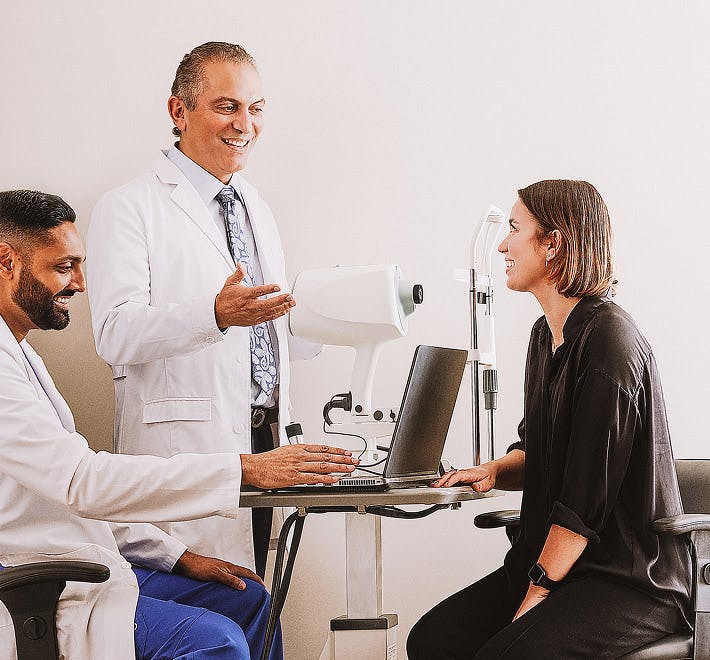Enhancing Your Vision
Guiding you toward the procedure that fits your unique needs, so you can see the world clearly and confidently.

Cataract surgery is a common and highly successful procedure, but like any surgery, it requires proper preparation to ensure the best possible outcome. As an experienced eye surgeon with over 80,000 cataract and vision correction surgeries performed over the last 25 years, I can assure you that taking the right steps before your surgery can significantly impact your recovery and results. In this guide, we’ll walk you through everything you need to do to prepare for your cataract surgery, from dietary suggestions to pre-surgery testing and what to expect on the day of the operation.
Cataract surgery involves removing the cloudy lens from your eye and replacing it with an artificial lens to restore clear vision. While the procedure itself is quick and typically takes less than 30 minutes, preparation is key to a smooth and successful recovery.
Before your cataract surgery, your eye surgeon will conduct several tests to ensure that you are a good candidate for the procedure and to determine the best artificial lens for your eye. These tests may include:
It’s crucial to remove your contact lenses before these measurements. Soft contact lenses should be removed three days before your appointment, while hard lenses and gas permeable lenses should be removed three weeks prior. Wearing contact lenses can alter the shape of your cornea and affect the accuracy of the measurements.
In the days leading up to your surgery, it’s important to maintain a healthy diet to support your body’s healing process. Here are some dietary tips:
To minimize the risk of infection and inflammation, your eye surgeon will prescribe a regimen of eye drops to use before your surgery. This typically includes:
Start using these drops three days before your surgery as directed by your surgeon. Be diligent about following the prescribed schedule to ensure your eyes are in the best possible condition for the procedure.
On the day of your surgery, you will need to fast for 6-8 hours prior to the procedure. This means no food or drink, including water. Fasting is necessary to reduce the risk of complications from anesthesia. Your surgical team will provide specific instructions based on the time of your surgery, so be sure to follow them carefully.
It may seem obvious, but make sure you know which eye is scheduled for surgery. Confirm this with your surgeon and the surgical center. Miscommunication can lead to unnecessary stress and complications. Write it down if necessary, and don’t hesitate to double-check with the medical team on the day of your surgery.
On the day of your surgery, you’ll need to arrive at the surgical center early to complete any last-minute paperwork and preparations. Here’s a step-by-step guide of what to expect:
Once your surgery is complete, you’ll need to follow a few important steps to ensure a smooth recovery:
Guiding you toward the procedure that fits your unique needs, so you can see the world clearly and confidently.




If you do not see your preferred date and time please call the office, so we can accommodate your request (917) 398-4011.